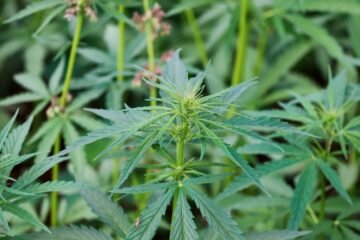In a groundbreaking move, the Himachal Pradesh Assembly has passed a resolution to legalize cannabis cultivation, marking a significant shift in agricultural policy for the state. This decision comes after thorough deliberations and recommendations from a committee led by Revenue Minister Jagat Singh Negi, who has been a key advocate for the initiative.
A Collaborative Effort for Change
The resolution was introduced in the Assembly under Rule 130, garnering support from both ruling and opposition members. This bipartisan backing underscores the growing recognition of the potential benefits of cannabis cultivation in Himachal Pradesh.
- Committee Findings: The committee, which traveled across all districts of the state, engaged with local residents to assess the feasibility of cannabis farming.
- Successful Models: Insights were drawn from successful cannabis cultivation models in neighboring regions, including Jammu and Kashmir, Uttarakhand, and Madhya Pradesh.
Negi emphasized that the overwhelming consensus among stakeholders was in favor of legalizing cannabis, highlighting its potential for both medicinal and industrial applications.

Practical Benefits of Cannabis Cultivation
The advantages of cultivating cannabis in Himachal Pradesh are numerous, according to the committee’s findings. Negi pointed out several key benefits that make cannabis an attractive crop for local farmers:
- Water Efficiency: Cannabis requires minimal water compared to traditional crops, making it suitable for regions facing water scarcity.
- Resilience: The plant is resistant to animal damage and is largely disease-free, reducing the need for pesticides and other chemicals.
- Economic Viability: With the potential for industrial hemp production, farmers can diversify their income sources, especially in areas where conventional crops struggle to thrive.
The resolution outlines a clear distinction between industrial hemp, which will be drug-free and contain negligible levels of THC, and medicinal cannabis, which will be subject to strict regulations akin to those governing opium cultivation under the NDPS Act.
Future Prospects and Regulatory Framework
The state government is already witnessing interest from investors eager to explore opportunities in industrial hemp. This enthusiasm could lead to job creation and economic growth in rural areas, where traditional agriculture has faced challenges.
To ensure responsible cultivation and prevent misuse, the Himachal Pradesh government plans to implement a robust regulatory framework for medicinal cannabis. This framework will be crucial in maintaining control over the cultivation process and ensuring that the benefits of cannabis farming are realized without compromising public safety.
As the resolution moves forward, the Himachal Pradesh Assembly’s decision could set a precedent for other states in India considering similar measures. The potential for cannabis cultivation to contribute to the state’s economy while addressing agricultural challenges is a promising development for the region.



